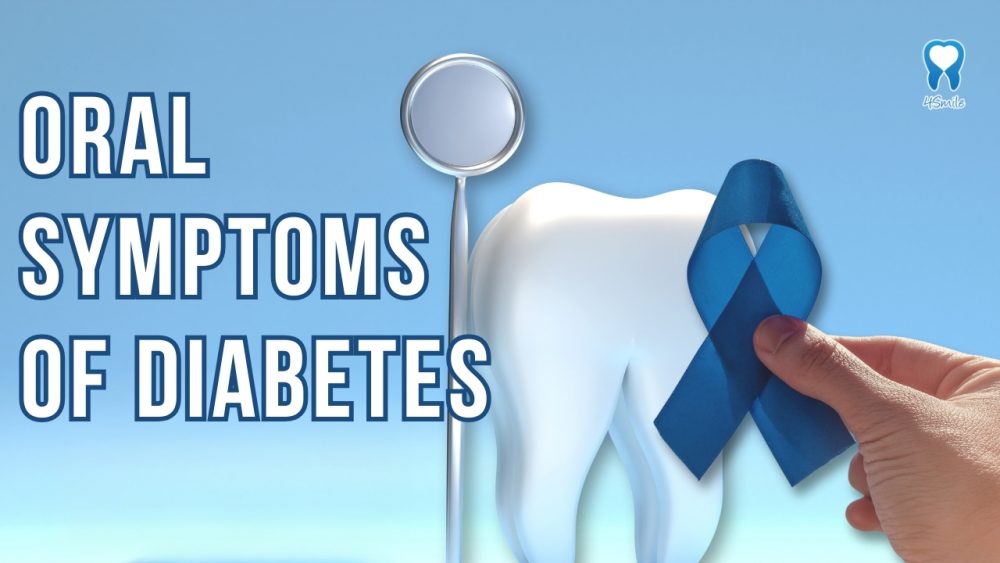Oral symptoms that may indicate diabetes
Today, November 14th, we observe World Diabetes Day, an opportunity to reflect on the importance of prevention, early detection, and proper healthcare management.
Diabetes is a serious chronic disease that affects blood sugar levels and can cause complications throughout the body, including in the mouth. While many may not be aware of the connection between oral health and diabetes, dentists are often among the first to notice signs of the disease. Regular check-ups and attention to oral symptoms can help with early detection of diabetes, which is crucial for managing the disease and reducing the risk of complications.
In this week’s blog from Dental Center 4Smile, we highlight several common oral symptoms that may be the first signs of diabetes.
-
Dry Mouth (Xerostomia)
One of the common symptoms of diabetes is reduced saliva production, leading to dry mouth. Decreased saliva can cause discomfort, difficulty speaking and swallowing, and increase the risk of cavities and infections in the mouth. Dry mouth can also lead to a burning sensation and discomfort in the oral cavity.
-
Increased Susceptibility to Infections
People with diabetes are more prone to developing oral infections, especially fungal infections like candidiasis. High glucose levels in saliva create a favorable environment for fungal growth, which can lead to white patches, redness, and irritation on the tongue and the inside of the cheeks. Fungal infections are typically accompanied by pain and an unpleasant taste in the mouth.
-
Bad Breath (Halitosis)
Chronic bad breath may be a sign of diabetes, especially if the breath has a fruity odor. In individuals with poorly controlled blood sugar, the body may start breaking down fats instead of sugars for energy, producing ketones. This process can cause breath to smell like acetone or fruit.
-
Gum Problems
Diabetes can affect gum health, making them more sensitive and prone to inflammation and bleeding. Periodontitis, a serious gum disease, is more common in people with diabetes because high blood sugar levels promote bacterial growth. Symptoms include swelling, redness, and bleeding gums, and long-term effects can lead to tooth loss.
-
Slow Wound Healing
People with diabetes often have a weakened immune system, which slows down the healing of wounds, including those in the mouth. If you notice that small cuts, sores, or ulcers in the mouth take a long time to heal, it may be a cause for concern and warrant a visit to a healthcare provider.
-
Tooth and Bone Loss
Neglecting gum health can lead to tooth loss, especially in diabetics who are unaware of their condition and are not receiving appropriate treatment. Over time, untreated periodontitis can lead to bone loss, which may cause further dental issues and affect supporting tissues.
Recognizing these symptoms may be key to early diabetes detection. If you notice any of the above symptoms, it’s important to consult a doctor and dentist. Regular visits to dentist not only help maintain healthy teeth and gums but can also be the first step in detecting hidden health problems like diabetes.
At Dental Center 4Smile, we are committed to your health and provide comprehensive services including diagnostics and consultations. Our team will help you identify early signs of health issues and enable timely intervention to preserve your dental and overall health.













